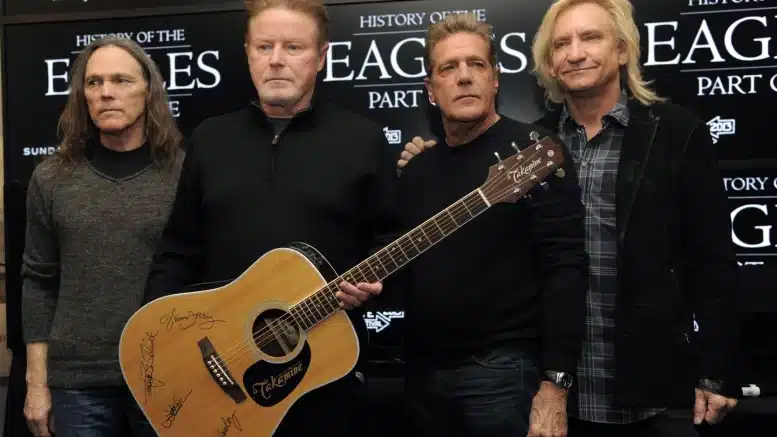In the mid-1970s, the Eagles embarked on the creation of a mysterious and evocative new song. Don Henley, along with input from band co-founder Glenn Frey, penned notes on a yellow pad, musing about “a dark desert highway” and “a lovely place” with luxurious yet foreboding undertones. Among the scribbles were references to something on ice, possibly caviar or Taittinger — or pink Champagne?
This song, ultimately titled “Hotel California,” would go on to become one of rock’s most iconic singles. Now, nearly half a century later, the handwritten pages containing the genesis of these lyrics have become the focal point of an unusual criminal trial set to commence on Wednesday.
Charged with conspiring to possess and attempt to sell manuscripts of “Hotel California” and other Eagles hits without authorization are rare-book dealer Glenn Horowitz, former Rock & Roll Hall of Fame curator Craig Inciardi, and memorabilia seller Edward Kosinski. While the trio has pleaded not guilty, the Manhattan district attorney’s office alleges that they conspired to conceal the disputed ownership of the documents, despite being aware that Henley had asserted they were stolen.
Though disputes over valuable collectibles are not uncommon, criminal trials of this nature are rare occurrences. Most conflicts are resolved through private negotiations, lawsuits, or agreements to return the items.
The case of the Eagles manuscripts is unique in several respects. The star witness for the prosecution is Henley himself, who is expected to testify between Eagles tour stops. The trial offers a rare glimpse into the band’s creative process and the fast-paced lifestyle of 1970s stardom.
Central to the trial are over 80 pages of draft lyrics from the Eagles’ monumental 1976 album “Hotel California,” including the title track, which features one of classic rock’s most recognizable riffs and memorable lines. Henley has described the song as an exploration of “the dark underbelly of the American dream.”
The defendants are charged with conspiracy to possess stolen property and other related offenses. While they are not accused of directly stealing the documents, prosecutors must establish that the manuscripts were indeed stolen. The defense contends otherwise.
The case hinges in part on the Eagles’ interactions with Ed Sanders, a writer who worked on an authorized biography of the band in the late 1970s and early 1980s. Sanders sold the pages to Horowitz, who then sold them to Inciardi and Kosinski. The various explanations provided regarding the provenance of the manuscripts have added complexity to the case.
Despite the legal intricacies, one thing is clear: the defendants are facing serious charges that could have significant repercussions. As the trial unfolds, it will shed light on the tangled web of ownership disputes and the enduring legacy of one of rock’s most iconic songs.

